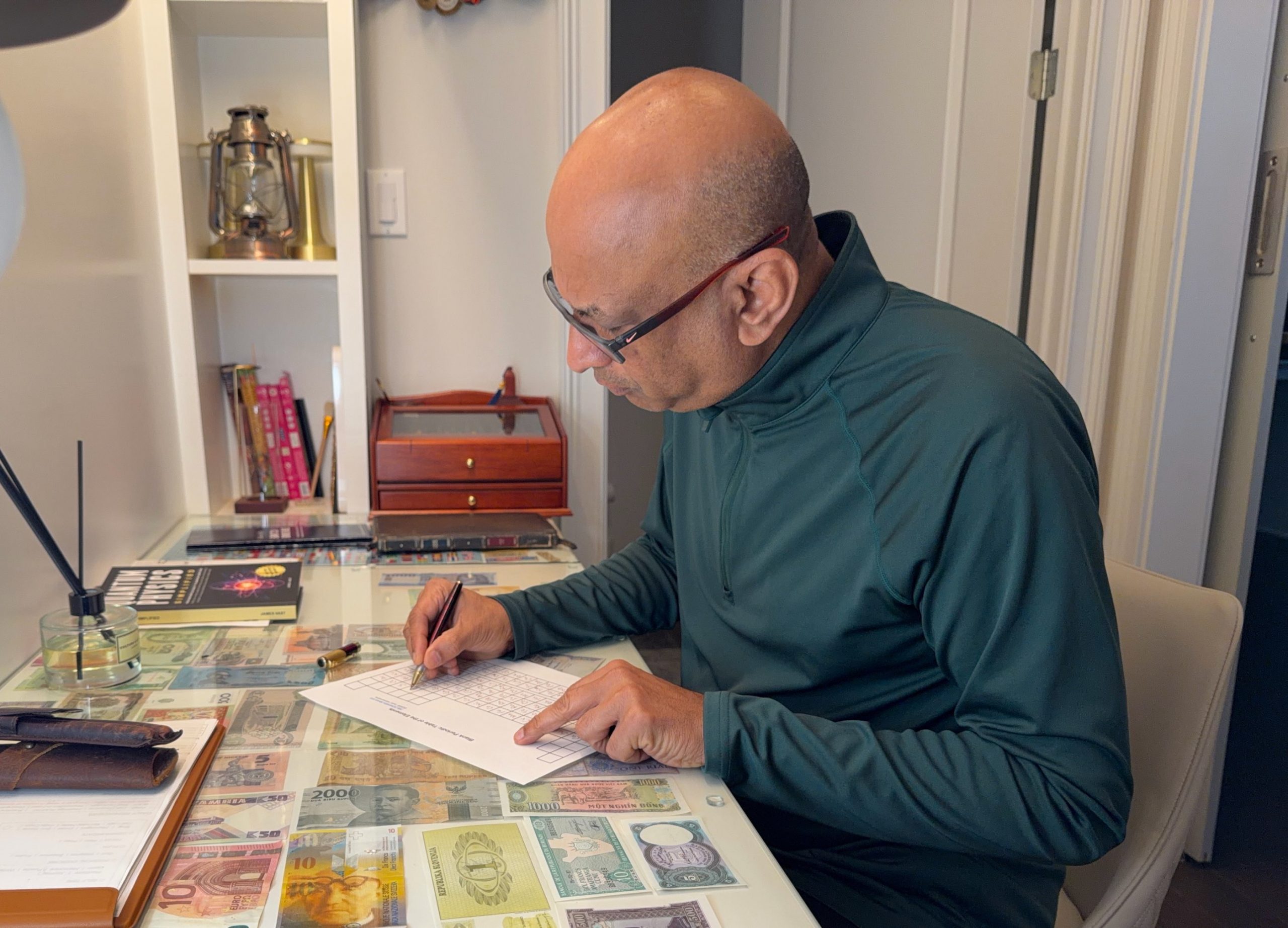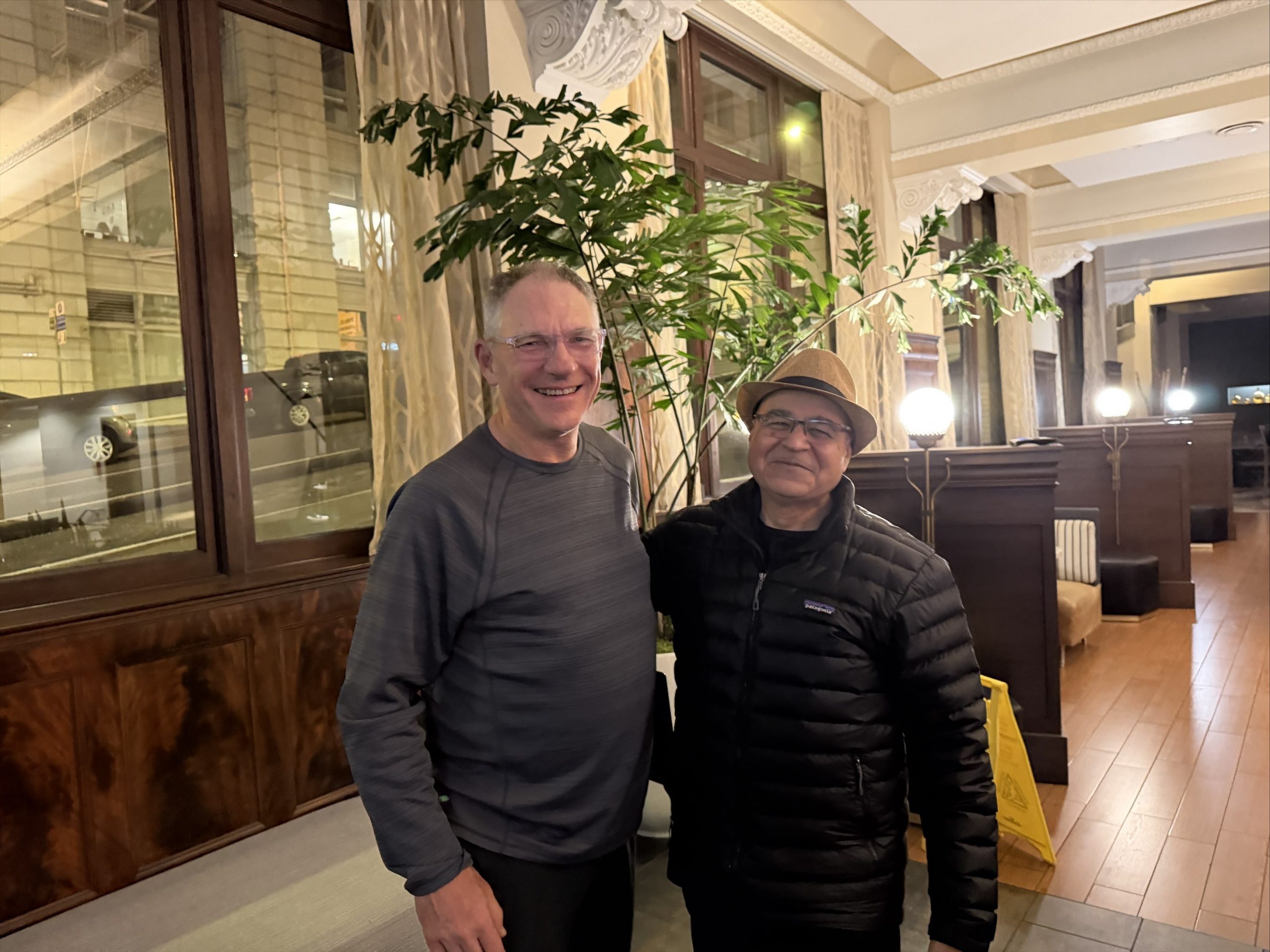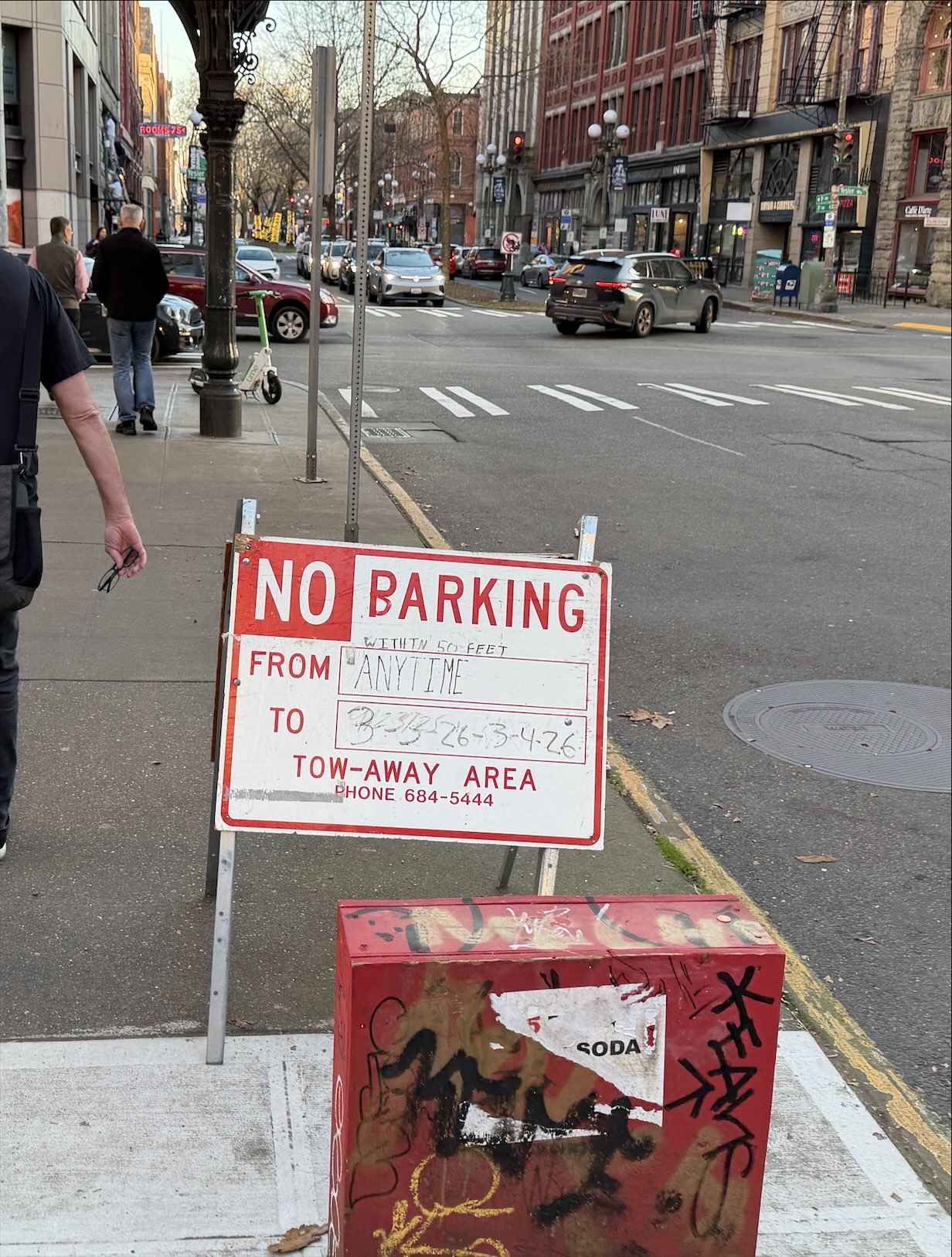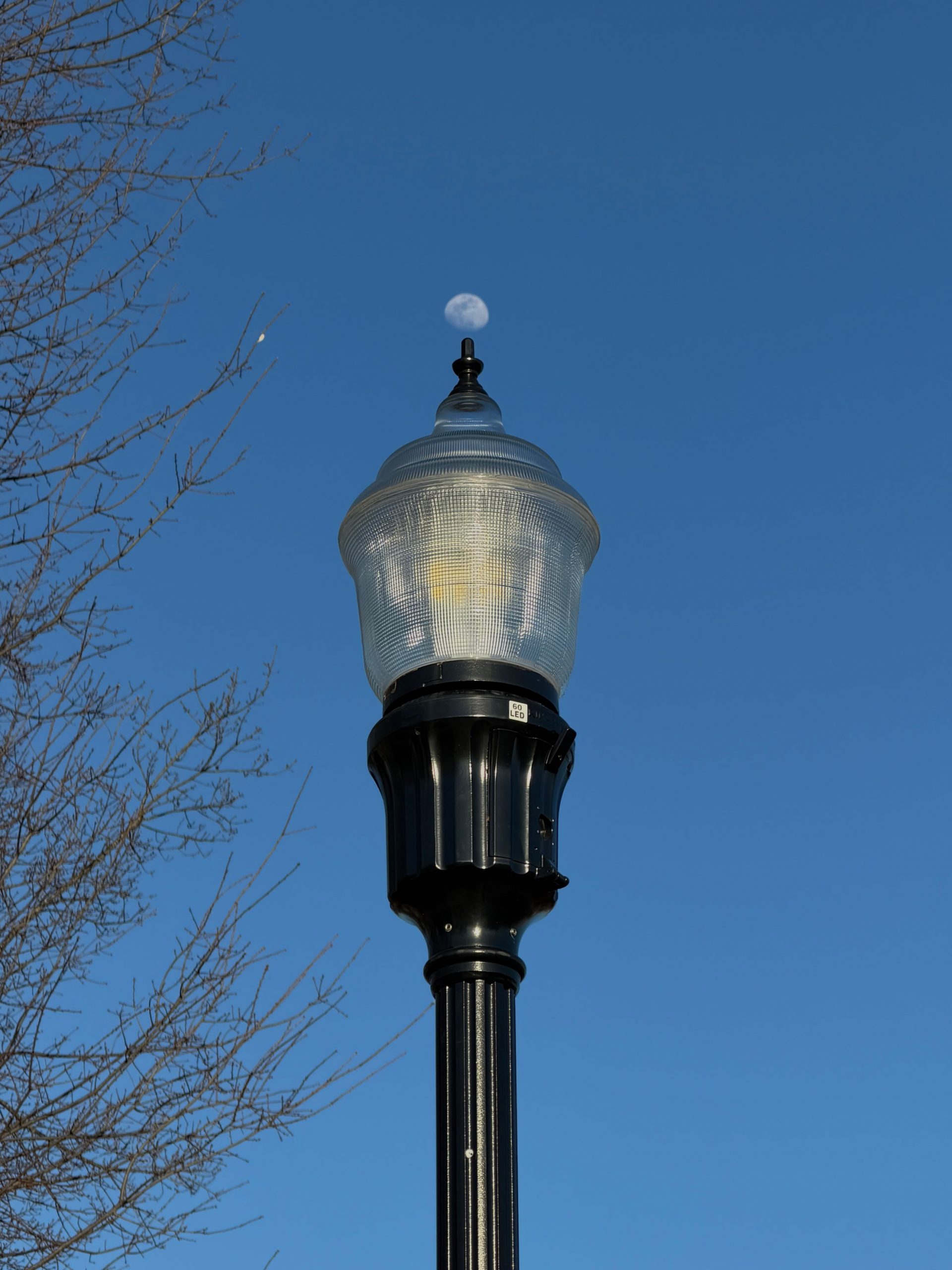When in Seattle, I have to meet this guy
Somebody came prepared with a red marker!
Gorgeous view of Mt. Rainier on our flight into Seattle
An unfinished task from my school days – and a quick quiz for you
A few weeks back, as a next step to my madness, I decided that memorizing the periodic table would be a worthwhile enterprise. I do not think I ever went beyond 25 elements in school.
As of this morning, I can finally narrate the entire periodic table of 118 elements. Forwards and backwards, for good measure!
Now, for a couple of interesting questions, try this:
1. “Q” is a letter that no element has as a starting letter. Actually, it is not there anywhere in the spelling of any element. There is another such letter. What is it?
2. What is the most common starting letter for the elements?
3. This is for my US friends. How many elements can you name whose symbol is the same as some state in the United States?

From the bartender’s corner: Cumin Alive
My long run these days used to be the short run ten years back
Reaching for the moon
Back to cappuccino with my logo
Blog Readers from the World
Just hit the 199 country mark this week with the some unknown reader visiting the blog site from Marshall Islands. The world map here shows where all the readers to my blog come from. Notable exceptions include Turkmenistan and a few African countries.
Thanks to Larry Mason for helping me with the WordPress editor when I was stuck.







